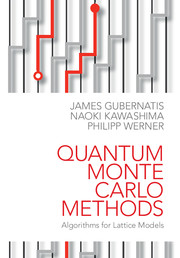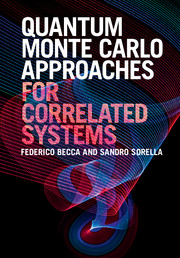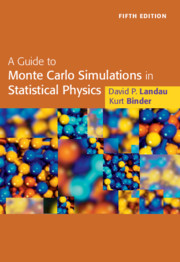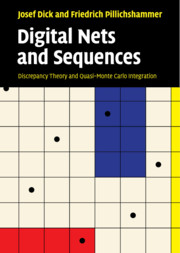Quantum Monte Carlo Methods
Featuring detailed explanations of the major algorithms used in quantum Monte Carlo simulations, this is the first textbook of its kind to provide a pedagogical overview of the field and its applications. The book provides a comprehensive introduction to the Monte Carlo method, its use, and its foundations, and examines algorithms for the simulation of quantum many-body lattice problems at finite and zero temperature. These algorithms include continuous-time loop and cluster algorithms for quantum spins, determinant methods for simulating fermions, power methods for computing ground and excited states, and the variational Monte Carlo method. Also discussed are continuous-time algorithms for quantum impurity models and their use within dynamical mean-field theory, along with algorithms for analytically continuing imaginary-time quantum Monte Carlo data. The parallelization of Monte Carlo simulations is also addressed. This is an essential resource for graduate students, teachers, and researchers interested in quantum Monte Carlo techniques.
- Provides extensive background on the quantum Monte Carlo methods being used today
- Explains how and why the major algorithms work, and discusses the strengths and weaknesses of present algorithms
- Presents the core algorithms and/or essential steps in these algorithms as pseudo-code in dedicated 'algorithm boxes'
Reviews & endorsements
'There's a lot in here but it is explained clearly with many outline algorithms and exercises … I'm sure it will become a standard reference in this area for some time because of the range of … techniques it describes and the care that has gone in to explaining them as clearly as possible given the technical nature of the subject.' Keith A. Benedict, Contemporary Physics
Product details
May 2016Adobe eBook Reader
9781316484845
0 pages
0kg
60 b/w illus.
This ISBN is for an eBook version which is distributed on our behalf by a third party.
Table of Contents
- Part I. Monte Carlo Basics:
- 1. Introduction
- 2. Monte Carlo basics
- 3. Data analysis
- 4. Monte Carlo for classical many-body problems
- 5. Quantum Monte Carlo primer
- Part II. Finite Temperature:
- 6. Finite-temperature quantum spin algorithms
- 7. Determinant method
- 8. Continuous-time impurity solvers
- Part III. Zero Temperature:
- 9. Variational Monte Carlo
- 10. Power methods
- 11. Fermion ground state methods
- 12. Analytic continuation
- 13. Parallelization.





